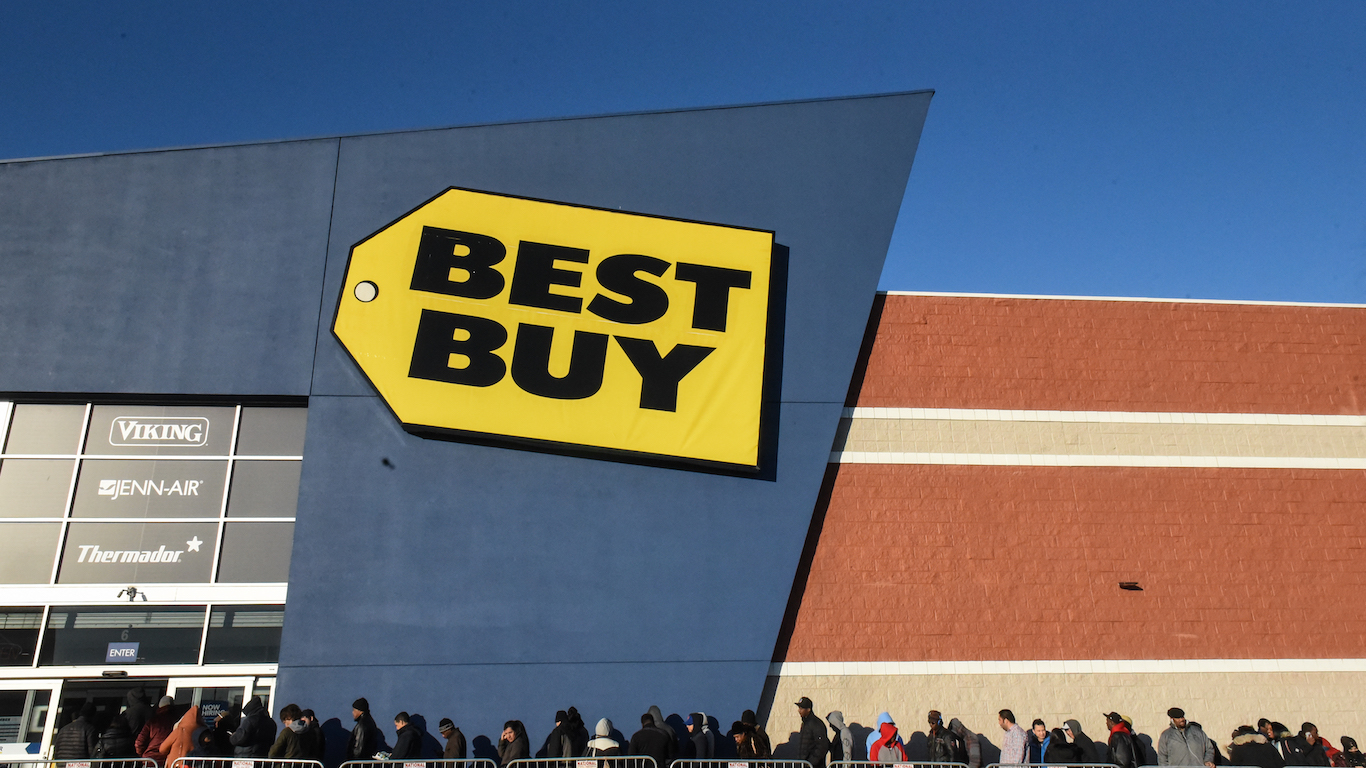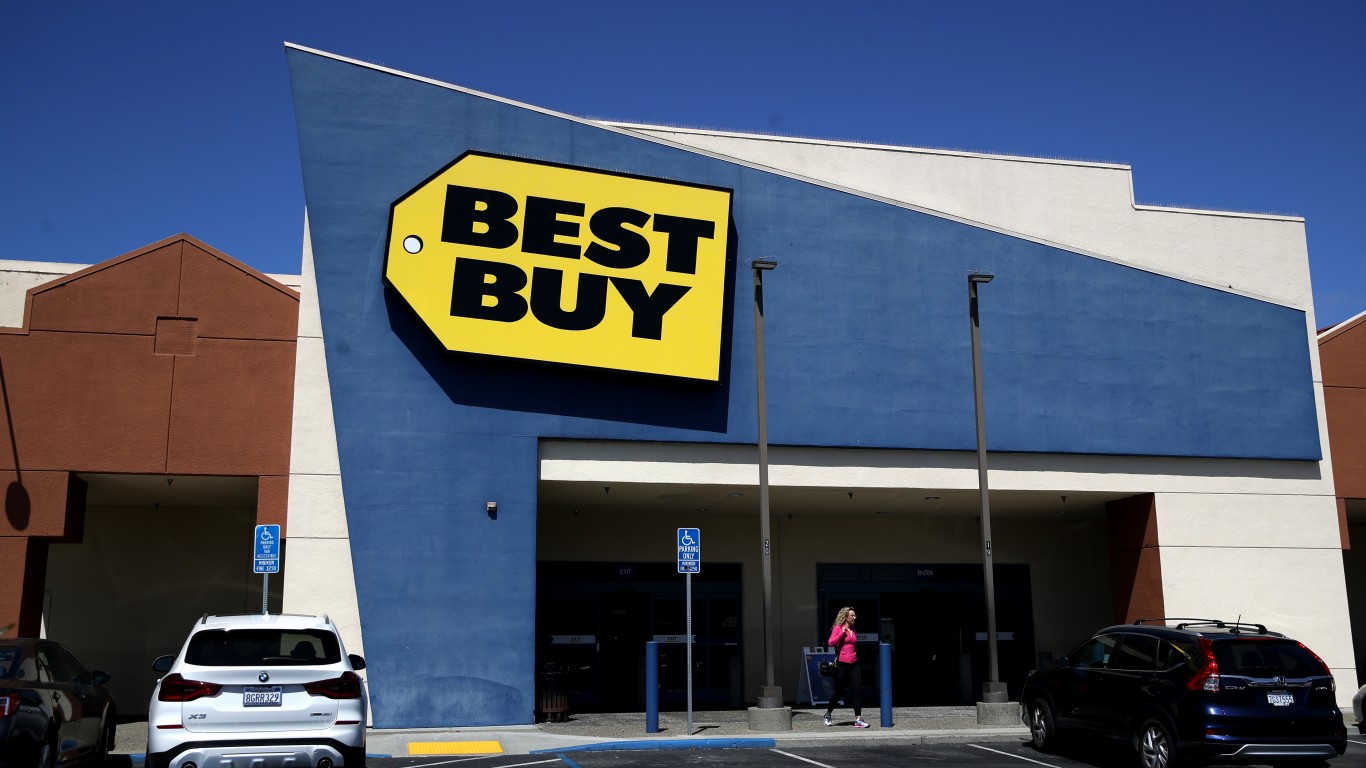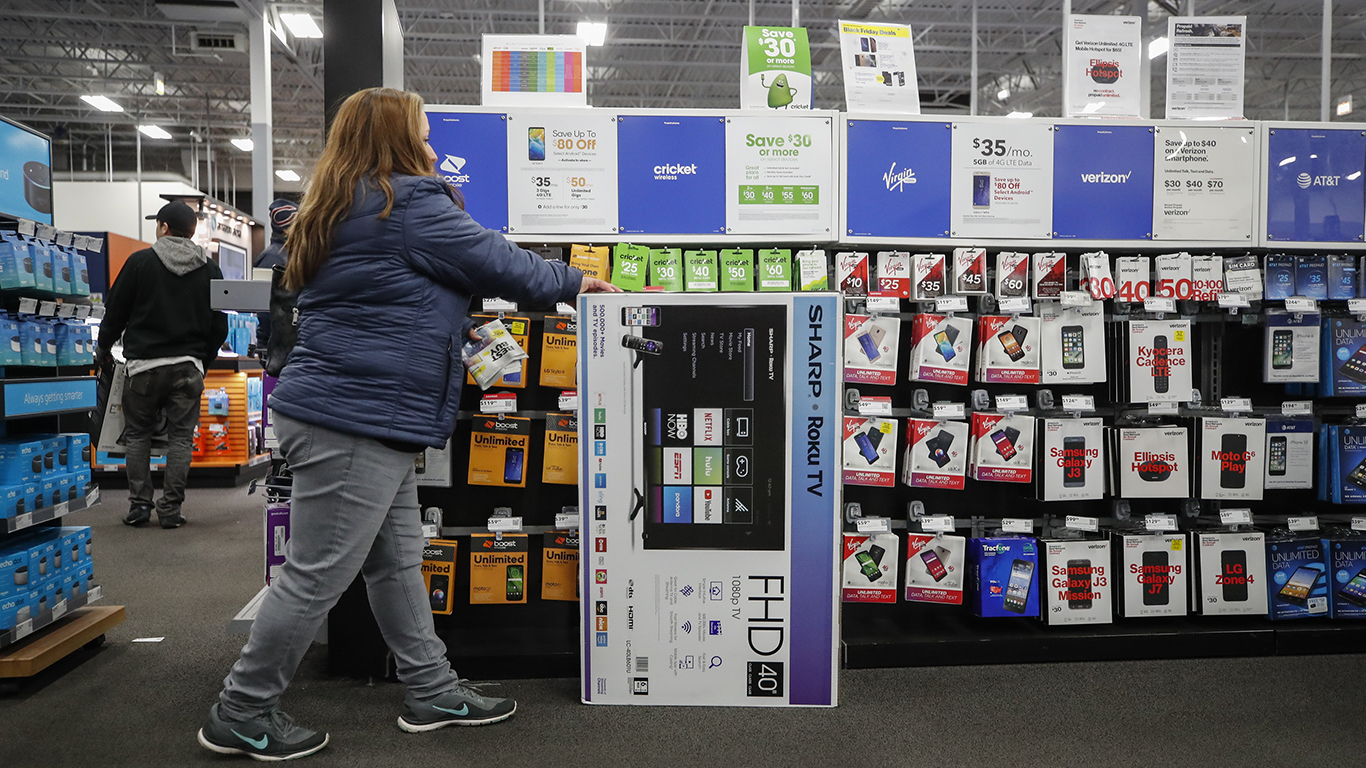
Founded in 1966 as an audio specialty store originally called the Sound of Music, the company was rebranded as Best Buy Co., Inc. (NYSE: BBY) in 1983 when the company had only seven stores and sales of $10 million. By 1984, Best Buy took a giant leap by introducing a superstore format, quickly capturing 42% of the local market.
Over the next 40 years, Best Buy expanded to be the undisputed leader in electronic sales, offering appliances and everything from iPhones to computers to big-screen TVs. Competition from Circuit City Highland Appliance and many others proved fruitless, and many reside in the retail graveyard.
The stock looks like a slam dunk when trading at 12.26 times trailing earnings, paying a 5.18% dividend, and just 15% above the 52-week low. We found six reasons why that might not be the case.
If the economy has a 2024 recession, retail will suffer

While the state of the American shopper looks strong, at least for now, there are warning signs the economy could slip in 2024. The persistent inversion between the two-year U.S. Treasury paper yield and the benchmark ten-year note suggests that a recession could be on the way, and history also reinforced the possibility.
The consumer is close to being tapped out
Credit Card debt has exploded to a stunning $1 trillion, much of the COVID savings from the government largesse are gone, and many people are turning to “buy now, pay later” agreements, which is problematic. In addition, Americans’ past-due bills are starting to pile up, and delinquent debts significantly increased this fall.
Best Buy has a massive pile of debt.

If a recession does come next year and sales dramatically decline, the company could have serious issues paying its debt. At a stunning $3.92 billion of total debt spread over many maturities, the debt service charge to the company each year is massive.
Could the dividend be in trouble?

Due to the massive debt mentioned above that the company has, if there is a severe downturn in the economy next year and consumer purchasing falls off a cliff, one of the first items executives may look at is trimming the dividend.
Big tech could end up being big trouble

Amazon.com (NASDAQ: AMZN) Prime is a massive competitor for many of the products offered at Best Buy. While the company provides services that online shopping can’t, like viewing the product in person and having their “Geek Squad” tech crew for customer help and installs, the reality is many people will order the products themselves and search for any additional services they need.
Sales in critical departments need to catch up

The company has seen a decline in departments in the store that often get funded via credit, like mobile phones, consumer electronics, and appliances. In addition, earlier this year, the company forecast the potential for same-store sales to decline in the critical holiday fourth quarter.
While the dividend, the price to earnings, and the current stock price look compelling, it may make sense to see how the holiday shopping season goes for the company before buying shares.
It’s Your Money, Your Future—Own It (sponsor)
Are you ahead, or behind on retirement? For families with more than $500,000 saved for retirement, finding a financial advisor who puts your interest first can be the difference, and today it’s easier than ever. SmartAsset’s free tool matches you with up to three fiduciary financial advisors who serve your area in minutes. Each advisor has been carefully vetted and must act in your best interests. Start your search now.
If you’ve saved and built a substantial nest egg for you and your family, don’t delay; get started right here and help your retirement dreams become a retirement reality.
Thank you for reading! Have some feedback for us?
Contact the 24/7 Wall St. editorial team.



